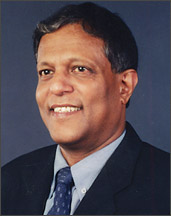Tourist arrivals will pick up soon
by Lalin Fernandopulle
 The tourism industry is confident that in a couple of months the
situation on the war front will change and tourist arrivals will
increase, said Managing Director Aitken Spence Hotels Management and
Immediate Past President Tourist Hotels Association of Sri Lanka Malin
Hapugoda. The tourism industry is confident that in a couple of months the
situation on the war front will change and tourist arrivals will
increase, said Managing Director Aitken Spence Hotels Management and
Immediate Past President Tourist Hotels Association of Sri Lanka Malin
Hapugoda.
Hapugoda said he was optimistic that the security situation in the
country will change since there cannot be war forever and tourism will
boom as in 2002 when the ceasefire agreement was in operation.
Tourist arrivals increased during 2002-2004 and it was the best time
for the industry after a very long time. A similar situation will arise
in the next couple of months in the country when both warring factors
seek a solution to the long standing problem, he said.
He said though we are at war the government has always been committed
to a negotiated settlement and not promoting war. Now that the East has
been cleared to a very great extent and the North to some extent the
industry is optimistic that peace talks will resume shortly.
"The All Party Representative Committee (APRC) also has indicated
that by mid August they will come up with a devolution proposal which
will also support the Government's efforts to solve the North East
problem", Hapugoda said.
The LTTE's fund raising mechanism has been curtailed in the world to
a very great extent and with the international support to resume peace
talks the negative notion about the country will gradually be dispelled
and tourists will continue to visit the country.
Tourism after the 1983 riots has been on a roller coaster ride with a
long downturn in arrivals but the industry has been resilient over the
years and with a change in the situation the travel and tourism sectors
will develop, he said.
The Hotels Association has called on the government to provide
assistance mainly to the small hoteliers to sustain the product and
maintain the staff. The small hoteliers who suffered a major setback
from the tsunami now face the challenge of sustaining their hotels with
arrivals dropping drastically.
Over Rs. 7 billion has been invested to refurbish some old and a few
new hotels. An investment of Rs. 4 billion has been planned for the
industry this year and next year which is now on hold due to the slow
progress of the industry.
Sri Lanka's tourism cannot grow with numbers alone as countries such
as Thailand and Malaysia have over 10 to 12 million tourists visiting
the country a year. Sri Lanka is small and there is a density of
population. While we must increase the number of arrivals we must
increase the high end niche products to be at least 30 to 40 percent of
the tourism portfolio in the long term.
He said one million is a short term target but if we are go beyond to
attract more tourists the 4,000 acre Kalpitiya tourism zone and the East
coast must be opened for tourist products as the number of rooms is not
adequate to achieve the one million target per year.
The average stay of a tourist was 10 nights when the western
Europeans were the majority of the arrivals three to five years ago. Now
with the Indian and other regional countries overtaking the western
tourists the average stay has dropped to around six nights.
"We should not digress from our traditional products such as the
beach which has been the preferred location for westerners. The Indians
and Chinese prefer casinos and night clubs and their stay is shorter
than Europeans. Sri Lanka does not have the product to attract tourists
from these areas as our competitors."
"Lack of trained personnel has affected the growth of the industry.
Professionals have sought greener pastures and if this trend continues
the industry will be affected by a severe shortage of trained
personnel", Hapugoda said.
He said to woo more tourists to the country there should be an
aggressive advertising and marketing campaign in tourism generating
countries when there is peace in the country.
[email protected]
|
